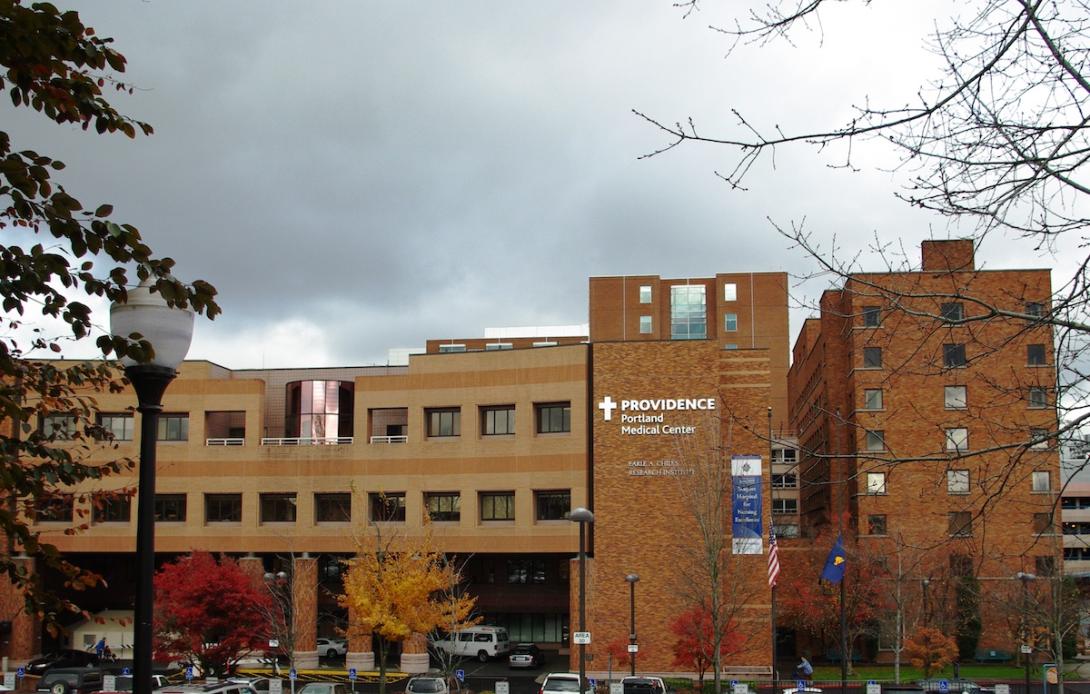
This article has been updated to incorporate additional reporting.
The Oregon Department of Justice has gone to court to force Providence Health & Services to provide records related to alleged improper billing of the poor by the state’s largest hospital system.
Despite evidence of a “top-down push to collect more from poor patients,” The Renton, Washington—based health system is refusing to provide relevant records for an unfair trade practices investigation by the state of Oregon, according to a March 5 state filing in Multnomah Circuit Court.
The Oregon filing cites initial findings that Providence may have improperly billed low-income enrollees of Oregon’s version of the Medicaid, the Oregon Health Plan and may have sent some of them to collections firms. Based on documents and witness interviews, it cites an employee's statement that the health system's push was to spend "as little ... as possible" on charity care for the poor.
Providence is a nonprofit hospital system founded by the Sisters of Providence, a Catholic order aimed at serving the poor. As a nonprofit, it receives lucrative tax benefits and is expected to provide charity care to low-income people according to state standards.
The filing does not say how many people may have been affected, but The Lund Report previously reported on public records with a state estimate indicating it may be more than 100,000 Oregonians.
The state filing says Providence is refusing to provide several key participants’ emails , as well as other information. Asked for comment on the new Oregon legal action, a Providence spokesperson provided a statement saying it had cooperated with the investigation by providing 100,000 documents and 10 witnesses for interviews.
“However, we see as highly burdensome and unreasonable the drastically overbroad document requests from ODOJ and regret the department felt it necessary to file its motion to compel. We intend to defend our position in court and look forward to reaching a resolution that is satisfactory to all parties,” the Providence statement said.
“As little going to charity as possible”
At issue is whether and how many poor people were pressured to pay medical bills that by law should have been covered by Providence itself.
The alleged practices by Providence began with a program called “RevUp” intended to increase collections, designed by the national consulting firm McKinsey & Co, court records show.
In February of 2022, the Washington state Attorney filed a suit over Providence’s use of the program, saying it launched unfair and deceptive collection practices targeting the poor. Later that year, the Service Employees International Union, which frequently clashes with Providence over contract terms, issued its own report criticizing Providence charity care practices in Oregon.
Earlier this year, Washington Attorney General Bob Ferguson announced a $157.8 million settlement with Providence Health and Services over the RevUp program. The settlement required reimbursements to those affected — a settlement noted by the Oregon justice department’s filing. The health system posted a statement attributing the billings to an “error,” saying it has made changes to fix the problem.
The new Oregon filing cites training prepared for RevUp that told employees to essentially disguise the existence of charity care and minimize the system's expenses for uncompensated care or charity care.
“The scripting put charity care last,” according to the filing. “Staff were directed to tell a patient about financial assistance only after making a number of requests for payment.”
It added, “The idea was to ‘Avoid asking questions that allow the [patient] to assume there is an option NOT to pay.’”
The filing cites an email sent to Pacific Northwest employees in 2018 that told employees that while trying to collect bills in hospital rooms, “don’t present FA [financial assistance] unless patient expresses the need for it or asks about it”
The filing said that during an investigative interview, a Providence vice president agreed that the message was “deceptive” and contrary to Providence’s professed values of compassion for the poor and integrity.”
A vice president said that a top financial executive of the organization “was very clear” that he wanted “as little going to charity as possible.”
The filing notes that after a New York Times article about the Washington lawsuit in October 2022, “Providence finally announced that it would refund payments made by affected Medicaid enrollees. Refunds were paid to Medicaid enrollees in Oregon in 2023, three years after managers had warned of the problem.”
But state lawyers said Providence is trying to limit the document request to RevUp — although the probe is going beyond that. "As DO has explained to Providence, after RevUp supposedly stopped, Providence appears to have continued with other similar initiatives, using different names."
Oregon probe began in 2022
After the Washington investigation became public, the Oregon Department of Justice began investigating whether similar practices had occurred in Oregon.
In November 2023, The Lund Report reported on public records showing that the Oregon Health Authority informed Providence of potential inappropriate billings in October of 2022, then followed up on Feb. 23, 2023, citing a figure of more than 108,000 members of the Oregon Health Plan that appeared to have been inappropriately billed.
Records showed that Providence’s Washington, D.C. attorney, Andrew Wright of K&L Gates, responded saying he wished to “respectfully disagree” with the state's characterizations and questioning the estimated scope of the improper billing.
More recently, in a brief filed in court to respond to the state's filing, Providence lawyers say the state's document requests have been unreasonable, “improper,” and will cost $675,000 in lawyer costs to review.